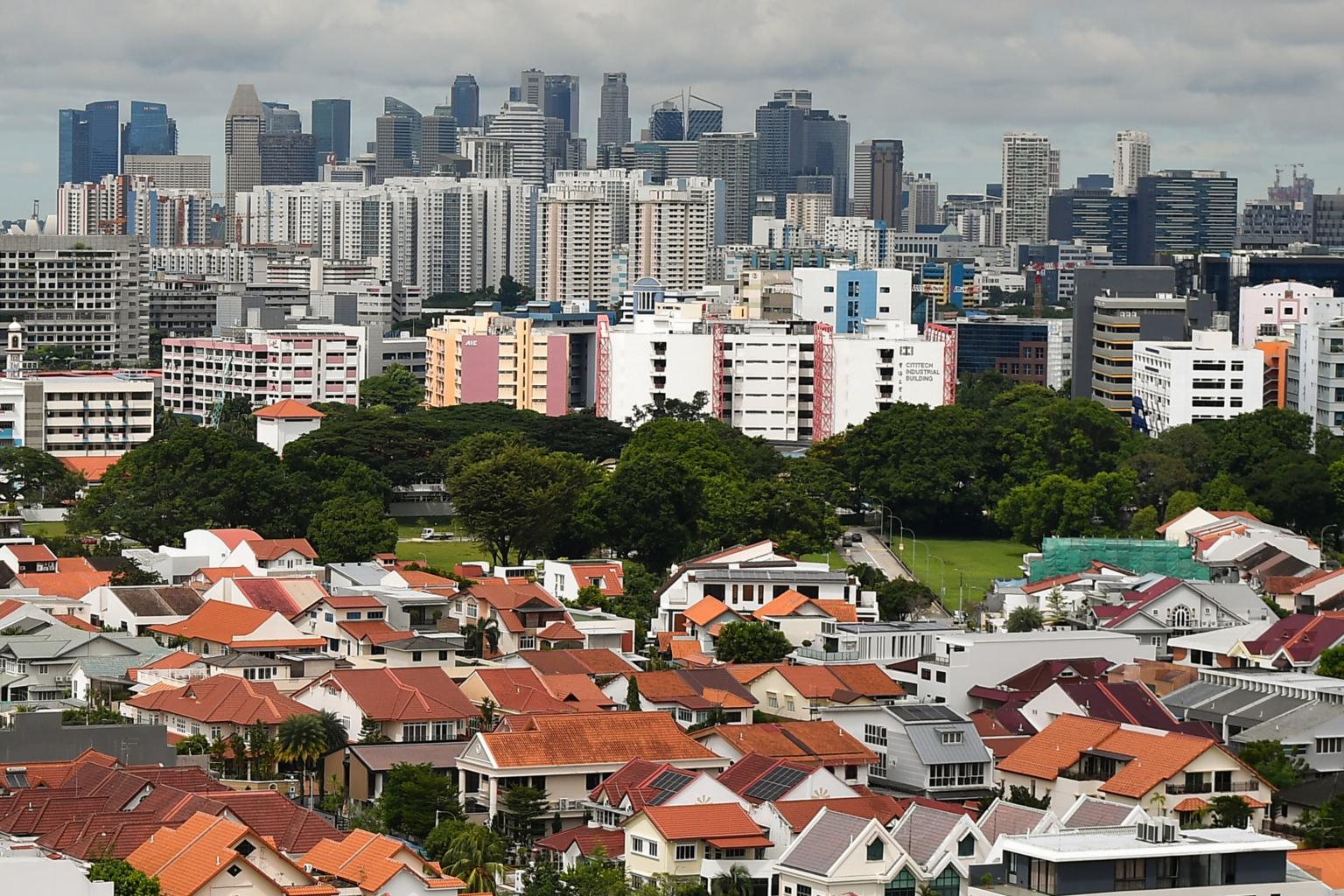Private home prices rise 3.4% in Q3, led by 7% jump for suburban condos: Flash data
Sign up now: Get ST's newsletters delivered to your inbox

Private home prices rose by 3.4 per cent from the previous three months.
PHOTO: ST FILE
Follow topic:
SINGAPORE - Private home prices continued to climb in the third quarter of this year, with prices in the suburbs rising the most on the back of strong demand for newly launched condominium units.
Overall, private home prices grew by 3.4 per cent from the previous three months, down slightly from the 3.5 per cent increase in the second quarter, according to flash estimates from the Urban Redevelopment Authority on Monday.
The rise was fuelled mainly by the non-landed segment, where prices were up 4.1 per cent compared with 3.6 per cent in the second quarter, even as banks raised mortgage rates.
For this segment, prices expanded fastest in the suburbs, jumping 7 per cent, outpacing the 2.1 per cent rise in the previous quarter.
This is the steepest quarterly increase in the suburbs since the third quarter of 2009 when prices spiked by 16.1 per cent, noted OrangeTee & Tie senior vice-president of research and analytics Christine Sun.
This could be attributed to a spike in median prices of new non-landed homes, which swelled by 18 per cent to a record $2,093 per sq ft (psf), compared with $1,774 psf in the previous quarter.
Non-landed new sales in the suburbs also leaped from 471 units in the second quarter of the year to 1,238 units in the third quarter, she added.
Analysts said new benchmark prices in major launches in the suburbs drove the steep price growth, with average prices at $2,113 psf at AMO Residence in Ang Mo Kio and $2,100 psf at Sky Eden@Bedok.
One Global Group senior analyst Mohan Sandrasegeran said: “Home buyers and investors, knowing the significance of these launches due to lack of options in the suburbs, were attracted by the developments’ advantageous locations.”
Prices for non-landed properties in the prime districts grew by 2.3 per cent, faster than the 1.9 per cent in the second quarter. Prices in the city fringe areas slowed down, up by 2.5 per cent, compared with 6.4 per cent in the previous quarter.
Huttons Asia senior director of research Lee Sze Teck said price growth in the city fringe areas is catching up to that in the core central region, pushing more people to buy homes in the prime districts owing to the narrowing price gap.
Meanwhile, landed home prices rose by 1.2 per cent in the third quarter.

Healthy property demand, low interest rates and pandemic recovery supported by strong fiscal measures helped to feed into higher prices in the past year, said PropNex Realty chief executive Ismail Gafoor.
“With interest rates set to rise further and the prospects of slower economic growth looming, we think the latest cooling measures will help to instil more caution and prudence into the property market,” he added.
Analysts said despite the latest round of cooling measures that kicked in on Sept 30, prices are unlikely to be affected over the rest of the year.
For property loans granted by private financial institutions, the medium-term interest rate floor used to compute the total debt servicing ratio (TDSR) and mortgage servicing ratio was raised by 0.5 percentage point.
This means stricter criteria will be used to assess borrowers’ ability to repay and qualify for a loan.
Ms Sun said the new measures are unlikely to have a major impact on buyers in the luxury and high-end markets.
“Even with a tighter TDSR, these buyers may have sufficient cash or capital to fund their property purchases. Some may redeploy funds from other investments to reduce their loans,” she added.
But Mr Lee said the move may push developers to defer some private home launches to next year, and transaction volume may slow down in the next three months.
Those who are hoping to make a purchase before interest rates rise further will likely continue to be active at launches, said Knight Frank Singapore’s head of research Leonard Tay.
“However, the mix of cooling measures just nine months apart, a possible recession in 2023, widespread inflation, and the manner in which private home prices have climbed in the last 2½ years since the pandemic began, will inevitably start to take a toll on some home buyers,” he added.

